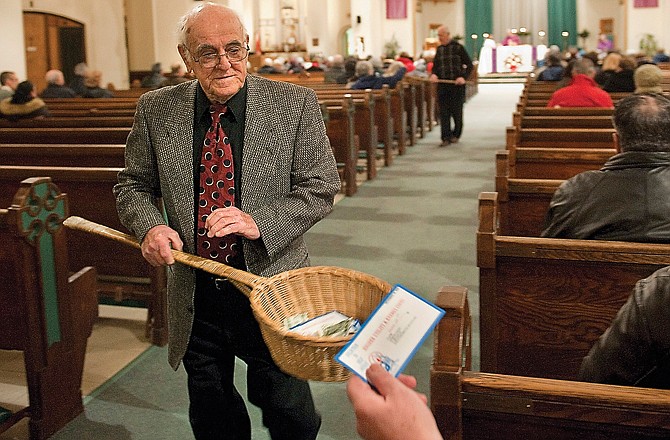BOSTON (AP) - A new study on the generosity of Americans suggests that states with the least religious residents are also the stingiest about giving money to charity.
The study released Monday by the Chronicle of Philanthropy found that residents in states where religious participation is higher than the rest of the nation, particularly in the South, gave the greatest percentage of their discretionary income to charity.
The Northeast, with lower religious participation, was the least generous to charities, with the six New England states filling the last six slots among the 50 states. Churches are among the organizations counted as charities by the study, and some states in the Northeast rank in the top 10 when religious giving is not counted.
The study also found that patterns of charitable giving are colored in political reds and blues.
Of the 10 least generous states, nine voted for Democrat Barack Obama for president in the last election. By contrast, of the 10 most generous states, eight voted for Republican John McCain.
But Peter Panepento, the Chronicle's assistant managing editor, said that political breakdown likely speaks to a state's religious makeup, not its prevailing political views. He noted the lowest-ranked Democrat states were also among the least religious, while the top-ranked Republican states were among the more religious.
"I don't know if I could go out and say it's a complete Republican-Democrat difference as much as it is different religious attitudes and culture in these states," he said.
The study was based on Internal Revenue Service records of people who itemized deductions in 2008, the most recent year statistics were available.
By focusing on the percentage given to charity from discretionary income - the money left over after necessities are paid for - the study aimed to remove variables such as the differing costs of living around the country, Panepento said. The data allowed researchers to detail charitable giving down to the ZIP code.
The most generous state was Utah, where residents gave 10.6 percent of their discretionary income to charity. Next were Mississippi, Alabama, Tennessee and South Carolina. The least generous was New Hampshire, at 2.5 percent, followed by Maine, Vermont, Massachusetts and Rhode Island.
In Boston, carpenter Stephen Cremins said the traditional New England ideal of self-sufficiency might explain the lower giving, particularly during tight times when people have less to spare.
"Charity begins at home. I'm a big believer of that, you know, you have to take care of yourself before you can help others," Cremins said.
The study found that in the Northeast region, including New England, Pennsylvania, New Jersey and New York, people gave 4.1 percent of their discretionary income to charity. The percentage was 5.2 percent in the Southern states, a region from Texas east to Delaware and Florida, and including most of the so-called Bible Belt.

